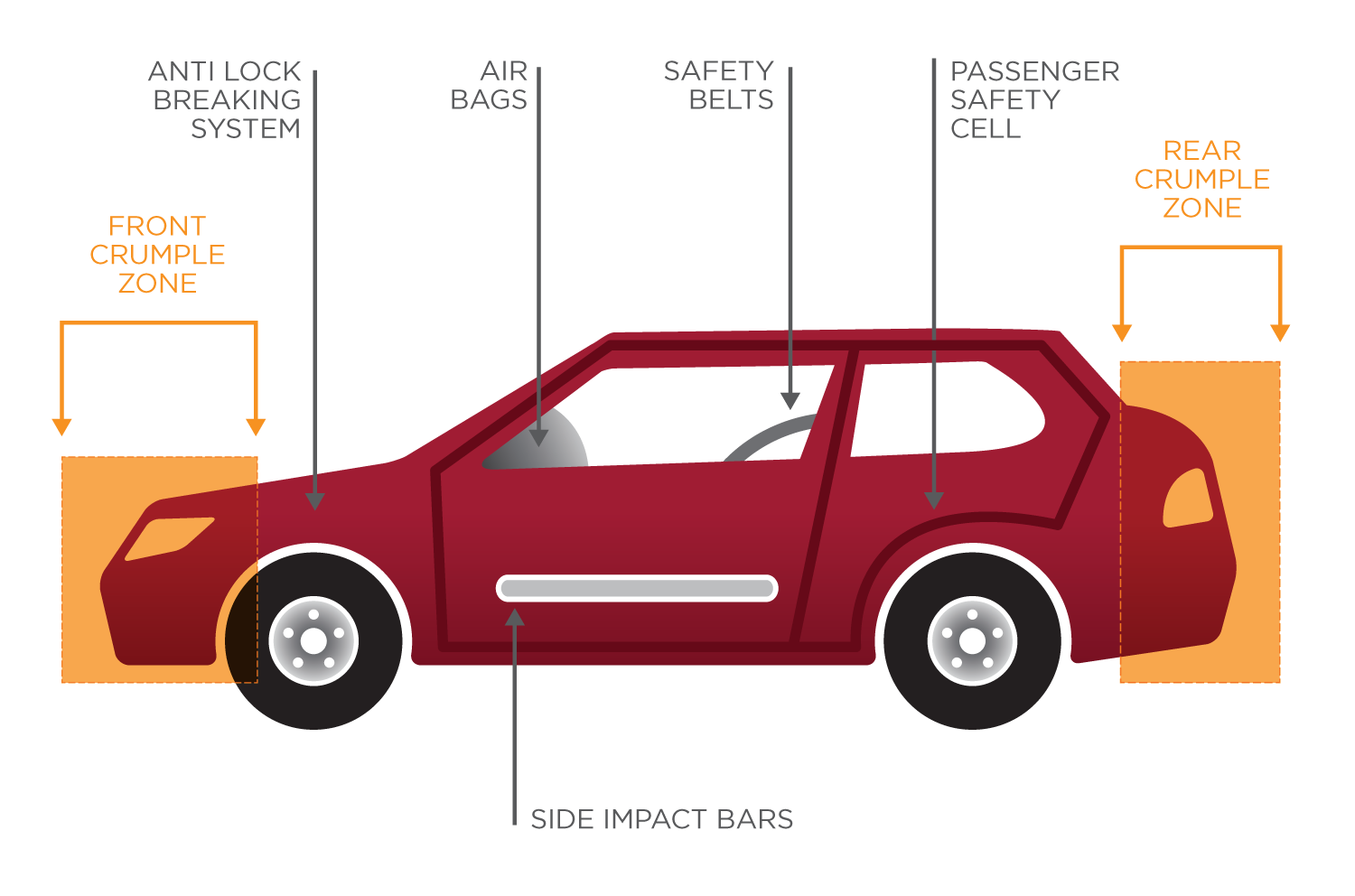Engineer a car with safety features to protect the passenger!
How it works
Cars are very big and heavy and move very fast, so they have a lot of force. When they crash into an object, that object “pushes back” with the same amount of force (Newton’s third law). Mechanical engineers design crash protection features to reduce the force of a collision.
Try this at home
- How many safety features can you find in your car?
- The safety features in “Crash Cars” help protect cars in collisions. What features help to prevent collisions?
- What could you do to protect a raw egg when dropped? Try designing a solution at home and testing it out!
Definitions/glossary
- Mechanical Engineering: mechanical engineers design and build motors and machines that move — like racecars, escalators, trains!
- Roll cage: a hard metal frame that protects passengers if a car rolls over
- Crumple Zone: designed to crumple in a collision to help reduce the main force of impact

What's going on at the University
Steven Waslander is giving cars brains! Autonomous vehicles think for themselves. They use sensors to find out what is around them and complete tasks. When machines are able to do tasks on their own, it prevents human beings from having to do those dangerous or dirty jobs. This is just one of many ways that mechanical engineers are making the world a better place!
How to become a mechanical engineer
The first step to becoming a mechanical engineering student is to graduate from high school with the required math, chemistry, physics, and english courses. After high school, you will attend an accredited engineering program. Mechanical engineering students at Waterloo are trained to lead large, multi-disciplinary team projects and come up with innovative solutions, like: designing a crashworthy, ultra-light vehicle; harnessing green energy from wind, wave or sun; or developing new surgical implants.
The co-operative study program will provide you with up to 24 months of practical experience complements and reinforces in-class learning. This will prepare you for a career as a mechanical engineer.